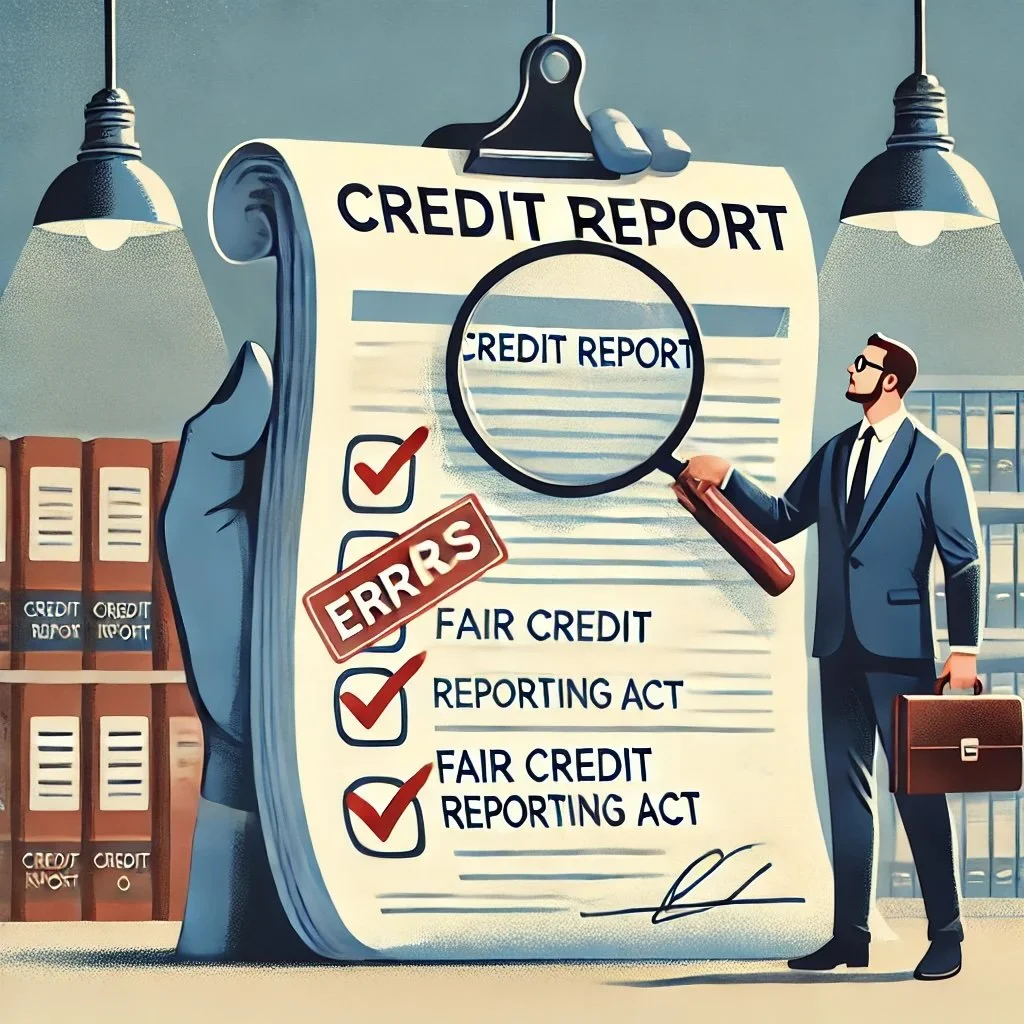CLOSED ACCOUNTS, OPEN OPPORTUNITIES — Cleaning the Record on Your Credit Report
Whether the account was closed in good standing or due to missed payments, understanding its impact and addressing inaccuracies is critical. At R23 Law, we specialize in protecting consumers’ rights under the Fair Credit Reporting Act (FCRA) and guiding clients toward a brighter financial future.
What Are Closed Accounts on a Credit Report?
Closed accounts refer to credit lines or loans that are no longer active. These can include credit cards you’ve canceled, paid-off loans, or accounts closed by creditors due to defaults or non-payment.
Key Points to Remember:
Positive Closed Accounts: Accounts closed in good standing can remain on your credit report for up to 10 years, contributing positively to your credit history.
Negative Closed Accounts: Accounts closed with late payments or defaults may stay on your report for seven years from the date of the first delinquency, often lowering your credit score.
While some closed accounts may benefit your credit history, others could significantly harm it. Determining which accounts to dispute or remove requires a clear understanding of their impact on your credit score.
How Closed Accounts Affect Your Credit
Many consumers assume closed accounts automatically hurt their credit score. This isn’t always the case.
Good Standing: Closed accounts in good standing can boost your credit score by increasing the length of your credit history.
Negative History: Accounts with late payments or charge-offs may continue to harm your credit until they age off your report.
At R23 Law, we help clients evaluate the status of closed accounts and determine whether action is needed.
FAQs: Your Questions Answered
Q: Should I remove all closed accounts from my credit report?
A: Not necessarily. Positive closed accounts may help your credit score, while negative ones could be worth disputing. Consult R23 LAW CONSUMER PROTECTION ATTORNEYS to determine the best strategy for your situation.
Q: Can I dispute a closed account if I paid it off?
A: Yes. If the account status is incorrect or contains errors (e.g., showing unpaid when it’s paid), you can dispute it under the FCRA.
Q: How long do closed accounts stay on my credit report?
A: Positive closed accounts can stay for up to 10 years, while negative ones remain for seven years from the date of the first delinquency.
Q: What if the credit reporting agency ignores my dispute?
A: If a reporting agency fails to investigate or resolve your dispute, R23 Law can help escalate the matter through legal channels.
Common Myths About Closed Accounts
Understanding the nuances of closed accounts can save you time and stress. Here are some common misconceptions:
Myth: Paying off a closed account removes it from your report.
Fact: Paying off a debt updates the account status to “paid,” but the account itself remains visible.
Myth: Closed accounts automatically harm your credit score.
Fact: Accounts closed in good standing can positively impact your score for up to 10 years.
Myth: All disputes result in account removal.
Fact: Only inaccurate or unverifiable information can be removed. Accurate negative accounts will remain until they age off naturally.
How to Address Closed Accounts on Your Credit Report
If a closed account is negatively impacting your credit score, consider the following steps to address it:
1. Obtain and Review Your Credit Reports:
Access your credit reports from all three major bureaus—Experian, Equifax, and TransUnion. Look for closed accounts that appear inaccurate or outdated.
2. Dispute Inaccuracies Directly with Credit Bureaus:
If you notice incorrect balances, dates, or statuses, file a dispute. Under the FCRA, credit bureaus have 30 days to investigate and correct errors.
3. Send a Goodwill Letter:
For accounts closed due to temporary financial hardship, you can request leniency from creditors. While they are not obligated to act, some creditors may agree to remove negative entries.
4. Consult with a Consumer Law Attorney:
If disputes are ignored or unresolved, R23 Law’s Attorneys can help escalate the matter. We assist with filing legal complaints against creditors or reporting agencies that fail to comply with the law.
5. Monitor Your Credit Regularly:
Staying proactive is key. Set up alerts for changes in your credit report to catch and address issues promptly.
Steps to Dispute Closed Accounts
Disputing closed accounts on your credit report can be a complex process, but it is manageable with the right strategy. Here’s how to proceed:
1. Review Your Credit Reports:
Access reports from Experian, Equifax, and TransUnion. Highlight any inaccuracies, such as accounts marked delinquent when paid in full or accounts you don’t recognize.
2. Gather Documentation:
Collect all relevant records, including payment confirmations, account statements, and correspondence with creditors.
3. Submit Disputes to Credit Bureaus:
File a dispute online, by mail, or over the phone. Include evidence to support your claim, such as copies of receipts or loan closure letters.
4. Send Dispute Letters:
While online tools are convenient, mailing a formal dispute letter often yields better results. Ensure it’s sent via certified mail for tracking.
5. Seek Legal Assistance:
If disputes are ignored or unresolved, contact R23 Law. Our attorneys specialize in escalated credit report disputes, ensuring your rights are protected.
Sample Dispute Letter Template
Take Control of Your Credit
Your credit report plays a significant role in your financial life. Whether you need assistance disputing closed accounts or protecting your rights under the FCRA, R23 Law Consumer Protection Attorneys is here to help.

